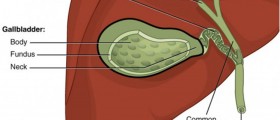I HAD ALL OF MY LARGE COLON REMOVED ABOUT 10 YEARS AGO AND THEN HAD MY SIGMOID COLON REMOVED A FEW YEARS LATER. I also do not have a gall bladder. I have had over 30 surgeries in my lifetime and have so many medical diagnoses right now I can't even remember all of them. But this is my main problem right now. I was treated for chronic pain for approximately 20 years and even had a pump inserted surgically at one time to control my pain. Unfortunately, the pain doctor I had used for over 10 years got into some legal problems and sold his practice. He knew ALL OF MY HISTORY AND ALL OF MY PROBLEMS. I had to go on Suboxone for a while because when he sold his practice the company that bought it took me off 300mg of morphine 3 times a day and 4 20mg Roxicodone a day in two months time leaving me with nothing after all of those years of being treated for chronic pain. So - of course, I had a heart attack, a small stroke, and I also have a huge blood clot in my left leg and now I am having back and neck issues as well. (They also found infected lesions on my brain a year ago which has never been looked into at all). But, I finally found a decent family doctor who found a new pain doctor for me. But here is my problem: he does not know my history and of course is not giving me anything close to what I was taking in the past for so many years. How do I explain to this doctor that what he is giving me is only keeping me in withdrawals most of the time and not helping at all with my pain due to the fact that it cannot work right in my system because I do not have a large colon, sigmoiod colon, or gallbladder? I need HELP PLEASE !! I FEEL LIKE I AM GOING INSANE FROM ALL OF THE PAIN !!!!!!
Loading...
Hi, guest.
I'm truly sorry to hear about the challenges and pain you're experiencing. It sounds like you've had a long and difficult journey with your health, and managing chronic pain can be incredibly challenging both physically and emotionally. Given your complex medical history and the numerous surgeries you've had, it's crucial to have a medical team that is fully informed and equipped to support you. Here are some steps you might consider taking:
-
Medical History Summary: Since your previous doctor knew all your history but is no longer involved in your care, you might find it helpful to write a comprehensive summary of your medical history. This should include surgeries, diagnoses, previous treatments, and medications. Bringing this to new doctors can give them a concise understanding of your situation.
-
Medication Absorption: Explain to the new pain doctor about your surgeries and the potential implications for medication absorption. Not having certain parts of the digestive system can affect how you metabolize and excrete drugs. This might be a reason why the pain medication isn't providing sufficient relief.
-
Seek a Pain Management Specialist: Given the complexity of your pain and your history with pain management, you might benefit from seeing a specialist in pain management, if you're not already. They are trained to handle complicated cases and might have more insights or alternatives to offer.
-
Open Communication: Approach your new doctor with the intent to collaborate. Express your concerns clearly and assertively, but avoid coming across as confrontational. It's crucial to establish a trusting relationship with any new provider.
-
Consider a Pain Journal: Keeping a daily log of your pain levels, activities, and medication doses can provide valuable data for both you and your doctor. It can help identify patterns and also show the doctor a clearer picture of what you're experiencing day-to-day.
-
Second Opinion: If you feel that your concerns aren't being adequately addressed, consider seeking a second opinion. Another professional might have a different perspective or additional suggestions.
-
Multimodal Pain Management: Modern pain management often involves a combination of medications, physical therapy, psychological therapy, and sometimes complementary treatments like acupuncture. Engage with your doctor to explore all potential avenues of pain relief.
-
Mental Health Support: Chronic pain can take a toll on mental well-being. If you haven't already, consider seeking support from a therapist or counselor who specializes in chronic illness or pain.
-
Patient Advocacy: Sometimes, having a dedicated advocate can help. This might be a family member, friend, or a professional patient advocate who can help you navigate the medical system and ensure your needs are addressed.
Good luck and don't give up.
Loading...
















